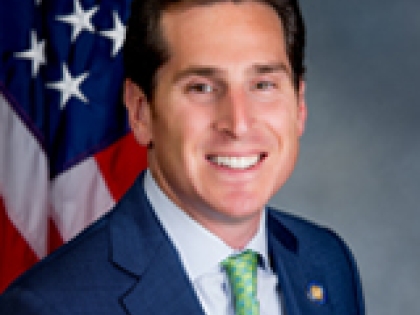
Nassau County Haitian Americans reach out to troubled homeland
Since the assassination of Haitian President Jovenel Moïse on July 7, Nassau County’s Haitian Americans have reached out to help the Haitian community, both those living in the county and those in the crisis-ridden nation.
Maryse Emmanuel-Garcy, of Baldwin, executive director of the Freeport-based organization Haitian Families of Long Island (HAFALI), said, “The general feeling of Haitians on Long Island is that all of us are in shock. There has been political instability and violence for years in Haiti, but we did not expect this.”
According to published reports, Moïse had become increasingly autocratic since his tumultuous election in 2016. He had ruled by decree during the pandemic, and his decision to draft a new Haitian constitution without the input of the disbanded Haitian senate was met with rising protests.
U.S. Representative Gregory Meeks (D-5th Congressional District, NY), chair of the House Foreign Affairs Committee, became so concerned that he and two other House Democrates, Albio Sires and Andy Levin, issued a joint statement on Dec. 22, 2020, calling for the Congress to enact “creditable U.S. policy that prioritizes the rights and aspirations of the Haitian people and supports a credible, Haitian-led transition back to democratic order.”
Despite these efforts, 28 armed men stormed Moïse’s residence in the wee hours of July 7, riddled him with bullets, and seriously injured his wife, Martine Moïse. She was flown to Miami for treatment, and returned on Sunday, July 18, surrounded by security agents.
“This is more than just a killing,” said Nassau County Legislator Carrie Solages, whose parents emigrated to the United States from Haiti during the mid-1970s. “This is an attack at Haiti’s chances for democracy, which are not high in the first place, as it is struggling politically, economically, socially, and of course during the pandemic.”
Solages and his sister, New York State Assemblywoman Michaelle Solages, have been in touch with Rep. Meeks, demanding answers.
“I’m very glad to say,” said Legis. Solages on July 13, “that [Meeks] replied to us that the United States today is sending COVID vaccines down there. The United States has many people down there now, assessing the situation, as per orders of President Biden.”
Meanwhile, HAFALI is finding ways to assuage the anxiety felt by Nassau County’s Haitian community, especially immigrants who came after the devastating 2010 earthquake.
“In Haiti, it’s collective trauma,” so Emmanuel-Garcy. “For immigrants here, the trauma of the earthquake gets revived, so on Zoom we talk about mental health.”
The political structure of Haiti appears to be calming since former Prime Minister Claude Joseph yielded his position to Moïse’s appointee, Ariel Henry. The new prime minister has called for a coalition government to form until legitimate elections can be held. Nonetheless, hopes for sending help from Nassau County’s Haitian diaspora are limited.
“For us it is too early to know if businesses are disrupted,” said Emmanuel-Garcy, “but the missions we had planned [prior to the assassination] will not happen. There is much confusion. We don’t know which parts of the country are still violent.”
Despite the horror of the assassination, Emmauel-Garcy also said, “We hope this will help Haiti to work into having a clearer political system.” She likened the U.S. political structure to a backbone that sustained America through the political turmoil of the pandemic and the 2020 presidential election.
To help unite Long Island’s Haitians, Legis. Solages assembled a vigil on Saturday, July 10, at the Bethany French Baptist Church in Elmont, a community where 21% of the residents have Haitian ancestry. The church’s pastor, Rev. Edy Bichotte, spoke in English, French, and Kreyol to those who came.
Rev. Bichotte linked Haiti’s crisis to the departure of individuals from God’s will, but said, “God is still there in the midst of the storm. He wants us to remember to search for Him.”
The vigil was also attended by New York State Senators Todd Kaminsky (D-9th Senate District) and Anna M. Kaplan (D-7th Senate District).
“The criminals that carried out this terrible assassination were hoping that no one would care,” said Kaminsky. “But we do care. And there will be accountabiltity.”
Now, as the world watches to see how Haiti recovers, Emmanuel-Garcy said, “We are always ready to participate, to help, not only in offering counseling, but by working to keep lines of communication open.”
Charitable donations and mission trips to bring medical and educational supplies will resume when possible. Those who wish to help can contact HAFALI by calling or texting (516) 524-6723, or emailing hafalimeg@gmail.com. They may also contact the offices of Legis. Solages or New York State Assemblywoman Michaelle Solages.